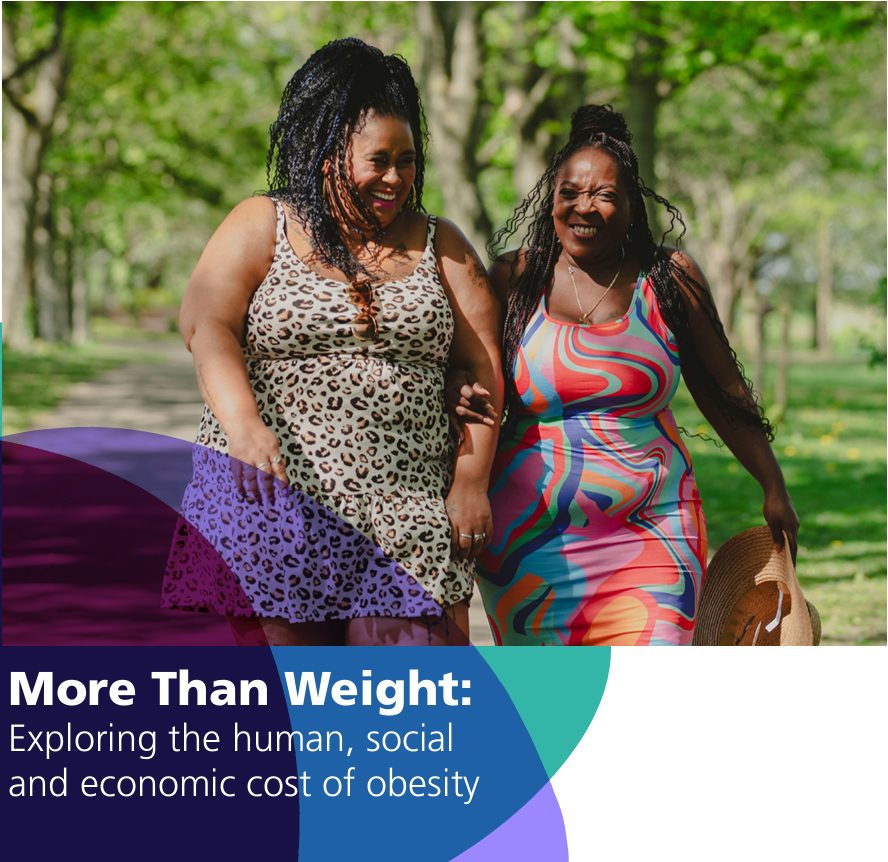On Wednesday 1 October, West Yorkshire Health & Care Partnership and the Humber & North Yorkshire Centre for Excellence launched their More Than Weight report.
The challenge of obesity
Influenced by environment, medical history, biology, socio-economic factors and mental health, obesity is one of today’s most complex public health challenges. The More Than Weight report examines the scale and impact of obesity across West Yorkshire, Humber and North Yorkshire, with a focus on de-stigmatisation and personal stories.
‘Trauma, stigma, social isolation, and systemic neglect profoundly shape the lives of people with obesity’.
Labour’s policy
This report comes in the wake of Health and Care Secretary Wes Streeting’s speech at the 2025 Labour Party Conference, in which he described the UK’s current ‘medical revolution’ as far more than that: ‘an industrial revolution – a technological revolution’. He insisted that ‘weight loss jobs could help us finally defeat obesity’, arguing that access to these medicines should not be determined by wealth; people should not be financially excluded from private prescriptions: ‘the wealthy talk about how they’ve transformed their health… what about the millions who can’t afford them?’
The More Than Weight Report
The More Than Weight report echoes Streeting’s egalitarian promises, by bringing the human cost and significance of obesity to its fore. It highlights the systemic issues facing obesity: stigma’s continuing influence on experience, inconsistent and vacillating quality of support, and under-resourced and under-financed services.
Through a commitment to prioritising lived experience, addressing trauma and inequality as focal drivers of obesity, as well as ensuring equitable care across all areas, the report streamlined their findings into five priority actions:
1. Embed trauma-informed, trauma-responsive care across all obesity pathways.
2. Expand behavioural and specialist weight management services.
3. Introduce anti-stigma training and drive culture change within health and care.
4. Support peer-led, community-based models rooted in lived experience.
5. Prioritise prevention and early intervention in areas of greatest need.
The More Than Weight report reframes obesity through a combination of political and economic filters, and personal experiences. National policy, which recognises obesity as a chronic, relapsing medical condition, is cited, but the discrepancy between promises for change and effected action is highlighted and challenged. Both the National Institute for Health and Care Excellence (NICE) guidelines and the Government’s 10-year NHS plan (which calls for more community-oriented, digital and preventative emphases) advocate care based on prevention and early intervention. However for these plans to be realised, medical professionals need to be freed up from the reactive, unsupportive systems that have – so the report argues – a damaging tendency to hold the patient accountable for their illness.
‘Current national data suggests that the combined annual cost of obesity to this region exceeds £6.1 billion – encompassing NHS treatment, productivity losses, social care demand, and wider economic impacts … The cost of inaction is not just a financial concern—it is an ethical and public health concern’.
How data and AI can improve obesity care
The NHS 10-year Plan and wider Life Sciences Sector Plan both consider data, AI and genomics fundamental to healthcare’s present and future development. As the report sets out, it is by creating a Secure Data Environment and investing in Health Data Research Hubs, that understanding around the disease can be strengthened: strengthened by the associative linkages that exist between biological, behavioural and environmental factors.
Improved data access and standardisation can help identify which treatments best suit patients, whether they are behavioural, pharmaceutical or metabolic. By having all obesity data in one place, then, patterns will emerge, and collocations will sharpen into direct causational factors – helping medical professionals to determine root causes swiftly, and thus to administer the appropriate treatments to patients.
To help solve the inequities of clinical obesity care, mentioned by the Streeting and the More Than Weight report alike, the growing National Genomic Research Library, if harnessed wisely, could offer opportunities to explore genetic and metabolic influences on obesity and treatment response. The challenge, other than the data fragmentation felt by an only incipient data service, will be to engage clinicians across the board: professionals who are already taxed by bureaucracy and other, pressing clinical priorities.
The More Than Weight report is both a call for medical and technological transformation, and for elevated human values of empathy and compassion regarding obesity. Through innovation and centralised health system planning, the disease will be better understood, and thus more effectively treated. Read the report in full here.




